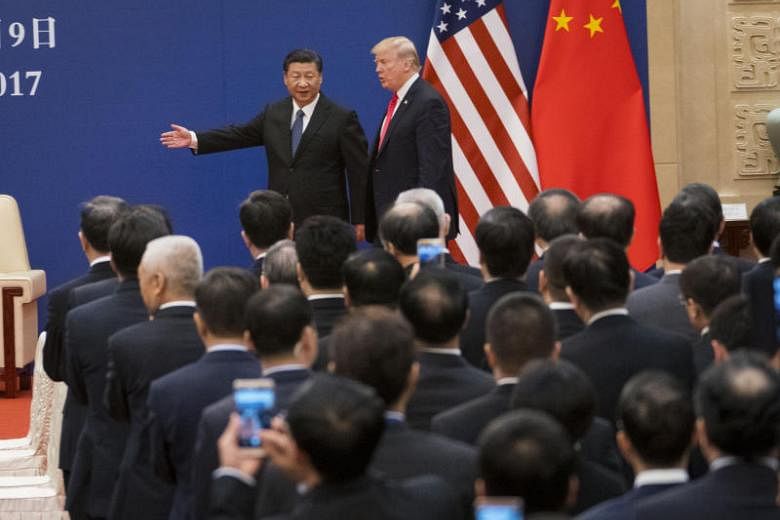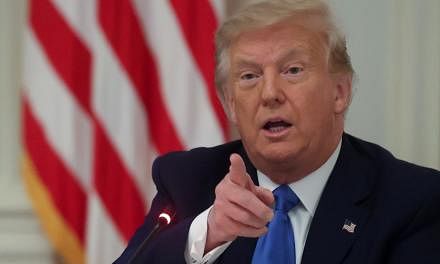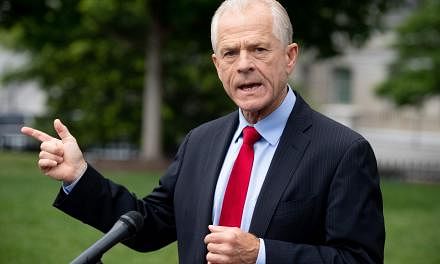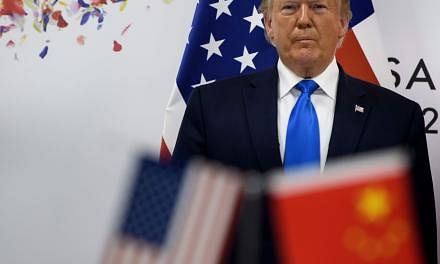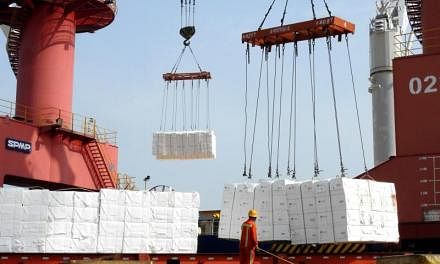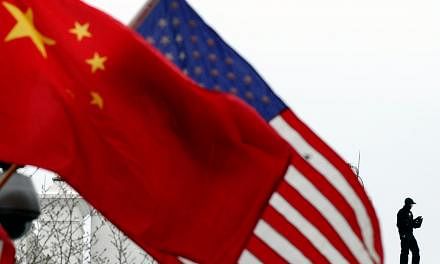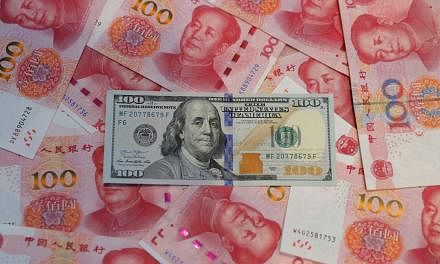BEIJING - Trade talks between China and the United States are proceeding as planned, and both sides want to work together to reach an agreement on trade, the Chinese Foreign Ministry said on Monday (Jan 7).
The start of the talks in the Chinese capital also buoyed investor sentiment, with Asian stock markets registering gains.
The Nikkei ended 2.44 per cent higher, while Seoul's Kospi index bounced 1.34 per cent. The Straits Times Index (STI) was up 43.57 points or 1.42 per cent, closing at 3,102.80 points.
The two-day trade summit began on Monday and is the first face-to-face meeting between both sides since Chinese President Xi Jinping and US President Donald Trump met last month in Argentina.
Both presidents had then agreed to a 90-day truce in their bitter trade war that had resulted in tariffs levied on billions of dollars of goods from both sides.
Chinese Foreign Ministry spokesman Lu Kang said at a regular press briefing on Monday that both sides have agreed to work together to have "positive and constructive talks".
"From the start, we've felt that the trade friction between China and the US is not beneficial to anyone, or the global economy. China is willing to resolve the dispute based on mutual respect and equal footing," he said.
He declined to reveal further information as the talks were underway.
The current round of negotiations is being held at the vice-ministerial level, with the US' team of negotiators led by Deputy Trade Representative Jeffrey Gerrish.
These working-level discussions are not expected to yield a concrete deal, but are a substantial step for both sides to check the progress of offers and demands before their top negotiators - Chinese Vice-Premier Liu He and US Trade Representative Robert Lighthizer - can sit down to reach an agreement.
Mr Trump had said on Sunday (Jan 6) that trade talks with China were going very well, noting that the weak Chinese economy was giving Beijing an incentive to negotiate and reach a deal.
On its part, China has resumed purchases of US soya beans, suspended import tariffs on US cars and also released a draft foreign investment law banning forced technology transfers.
Asked about Mr Trump's comments, Mr Lu said the Chinese economy has adequate "resilience and potential", adding: "We have full confidence in the long-term sound fundamentals of the Chinese economy."
But even as both sides kicked off talks in Beijing, the US riled the Chinese on Monday when it sailed navy destroyer USS McCampbell near the disputed Paracel islands in the South China Sea.
Beijng claims sovereignty over almost all of the South China Sea, but this is being disputed by several Asean countries - the Philippines, Vietnam, Malaysia, Brunei and Taiwan.
Pacific Fleet spokesman Rachel McMarr told Reuters the USS McCampbel was carrying out a "freedom of navigation" operation, to challenge "excessive maritime claims". The operation was not about making a political statement or any one country, she added.
The latest operation comes about a week after the US signed into law the Asia Reassurance Initiative Act (Aria), which will beef up the US' presence in the Indo-Pacific region.
Mr Lu said yesterday that the US' actions on Monday (Jan 7) have violated Chinese and international law, and that Beijing has lodged stern representations with Washington.
As for whether this would affect ongoing trade talks, Mr Lu replied saying that the "appropriate resolution" of issues between the US and China held benefits to both sides and the world.
"So both sides have the responsibility to create an enabling atmosphere for these talks," he said.
